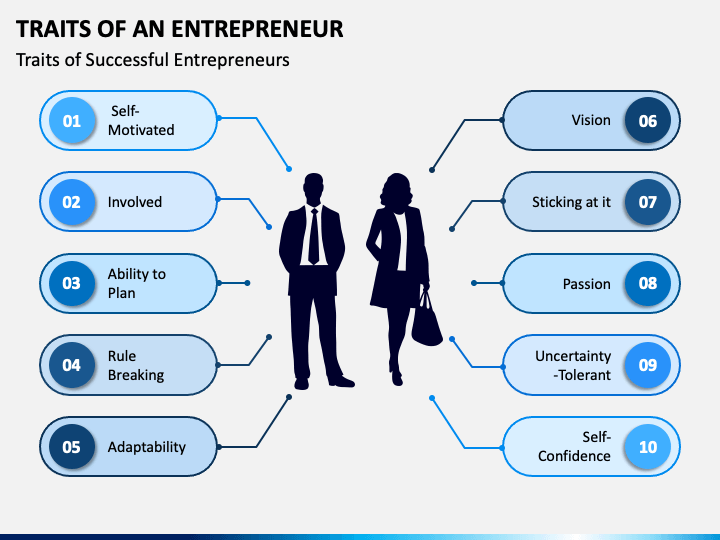Table of Content
- Key Takeaways
- Understanding Entrepreneurship
- Essential Traits of Entrepreneurs
- The Entrepreneurial Journey
- Types of Entrepreneurs
- Setting Up for Success
- Growth Strategies
- Pros and Cons of Entrepreneurship
- Resources and Support
- Starting Your Entrepreneurial Journey
- Closing Thoughts
- Frequently Asked Questions
Ever wondered what venture capitalists and entrepreneurs do to turn their dreams into reality in a new business venture and successful business? Curious about the daily grind and challenges many entrepreneurs face while building successful ventures in entrepreneurial activity? Understanding the ins and outs of an entrepreneur's journey can be both enlightening and inspiring.
From ideation to execution, entrepreneurs in entrepreneurship wear multiple hats, juggling various tasks, jobs, and companies to propel their businesses forward. Their relentless drive, resilience in the face of setbacks, unwavering passion, and entrepreneurship set them apart in the competitive business landscape. Join us as we delve into the dynamic world of entrepreneurial activity, uncovering the secrets behind their success and the hurdles businesses and companies overcome along the way.
Key Takeaways
- Entrepreneurship Actionable Insight: Identify your strengths and weaknesses to understand how they align with entrepreneurial traits.
- Traits for Success: Persistence, creativity, and adaptability are essential traits for entrepreneurs to navigate the entrepreneurial journey.
- Starting Strong: Define clear goals, create a solid business plan, and seek mentorship to set yourself up for success as an entrepreneur.
- Strategic Growth: Implement scalable growth strategies like diversification, partnerships, and market expansion to propel your business forward in entrepreneurship.
- Weighing the Pros and Cons: Consider the risks and rewards of entrepreneurship carefully to make informed decisions about starting your own business, companies.
- Utilizing Resources: Leverage available resources, such as networking opportunities and support programs, to enhance your entrepreneurial journey.
Understanding Entrepreneurship
Defining the Role

Entrepreneurs identify opportunities, take risks, and drive business ventures to success. They are pivotal in creating jobs and fostering economic growth. Entrepreneurs, through entrepreneurship, innovate, disrupt industries, and fuel competition in the market.
Daily Activities
Entrepreneurs oversee operations, make strategic decisions, manage resources effectively, and are involved in entrepreneurship. They juggle various tasks such as marketing, finance, and human resources. Prioritizing activities ensures continuous improvement and long-term viability.
Key Characteristics
Successful entrepreneurs exhibit resilience to overcome challenges, creativity to find unique solutions, and vision to set ambitious goals. These traits are crucial for navigating uncertainties, seizing opportunities, achieving sustainable growth, and entrepreneurship.
Essential Traits of Entrepreneurs
Personality Traits

Entrepreneurs possess specific personality traits crucial for success. Traits like risk-taking enable them to venture into the unknown, embracing uncertainty. Determination fuels their perseverance through challenges, driving them towards goals. Adaptability allows entrepreneurs to pivot swiftly in dynamic environments.
In the entrepreneurial landscape, different personalities can thrive. While some excel at innovation and creativity, others, like an entrepreneur, shine in strategic planning and execution. Successful entrepreneurs blend these diverse traits to build resilient businesses that adapt to market demands.
Success Mindset
Entrepreneurs cultivate a mindset focused on growth and continuous learning. They view challenges as opportunities for improvement, fostering resilience in the face of adversity. By setting ambitious yet achievable goals, entrepreneurs stay motivated and driven towards success.
Overcoming obstacles with a positive and proactive attitude, entrepreneurs navigate setbacks with grace. They embrace failures as valuable learning experiences, extracting insights to refine their strategies and approaches. This growth-oriented mindset propels entrepreneurs towards sustainable success.
The Entrepreneurial Journey
Becoming an Entrepreneur
Starting a business involves transitioning from an idea to a successful venture. Entrepreneurs need passion, dedication, and strategic planning. Taking the leap requires confidence and determination.
Pros:
- Freedom to pursue innovative ideas
- Potential for financial success
Cons:
- High levels of uncertainty
- Requires significant time and effort investment
Research Steps:

Successful entrepreneurs conduct thorough market research to validate their business ideas. They use data and insights to make informed decisions. Identifying target audiences, competitors, and market trends is crucial through comprehensive research.
Building Networks:
Entrepreneurs must establish connections with mentors, investors, and industry professionals. Leveraging networking opportunities helps gain support and guidance. Building a strong network fosters collaboration, partnerships, and business growth.
Types of Entrepreneurs
Various Paths
Entrepreneurs embark on different paths in their business ventures, ranging from establishing small businesses to launching scalable startups. Each path presents unique challenges and opportunities that shape the entrepreneurial journey. For instance, small business owners often focus on local markets and gradual growth, while startup founders aim for rapid expansion and global impact.
Navigating these various paths requires a deep understanding of the market dynamics, industry trends, and consumer behavior. Small business entrepreneurs typically deal with limited resources, intense competition, and the need for sustainable growth. In contrast, startup entrepreneurs face high uncertainty, the pressure to innovate rapidly, and the quest for securing funding to scale their ventures.
Choosing a career path as an entrepreneur involves aligning personal goals, values, and aspirations with the type of venture one wants to pursue. Some individuals, including entrepreneurs, are drawn to the stability and community impact offered by small businesses, while others thrive in the fast-paced environment of startups driven by disruptive technologies and ambitious visions.
Pros:
- Diverse opportunities for growth and innovation.
- Flexibility to tailor business strategies according to individual preferences.
Cons:
- High levels of risk associated with uncertain market conditions.
- Intense competition requiring constant adaptation and resilience.
Entrepreneurial success hinges on selecting the right path that resonates with one's skills, passions, and long-term objectives. By carefully evaluating the pros and cons of each entrepreneurial type, aspiring entrepreneurs can make informed decisions that set them on a fulfilling and rewarding professional journey.
Setting Up for Success
Organizing Ventures

Entrepreneurs create a solid business plan to outline their goals, strategies, and operations clearly. By structuring their business ventures efficiently, they pave the way for long-term success. Implementing organizational tools and systems is crucial for maximizing productivity.
- Pros: Clear direction, improved decision-making.
- Cons: Time-consuming, may require adjustments over time.
Securing Funding
Exploring various funding options such as loans, investors, and crowdfunding is essential for a successful business. Developing a compelling pitch helps attract potential investors and secure necessary funds. Entrepreneurs must understand the financial aspects of entrepreneurship to manage funds effectively.
- Loans
- Investors
- Crowdfunding
Idea Testing
Entrepreneurs validate their business ideas through market testing and feedback from potential customers. By iterating on concepts based on customer responses, they refine products or services accordingly. Implementing agile methodologies allows entrepreneurs to test and adapt ideas for better market fit.
- Market testing
- Customer feedback
Growth Strategies
Scaling Operations

Entrepreneurs strategize for growth by planning scalable operations to expand their businesses effectively. By optimizing resources and processes, they prepare for the increased demands that come with growth. Sustainable scaling involves careful management to ensure quality standards and customer satisfaction are maintained.
- Planning scalable strategies
- Optimizing resources and processes
- Maintaining quality and customer satisfaction
Scaling operations requires meticulous planning to ensure a smooth transition into a larger business entity. Entrepreneurs analyze current operations to identify areas that can be streamlined for efficiency. By investing in technology and automation, they prepare for increased demand without compromising quality.
Entrepreneurs focus on expanding their reach while ensuring operational efficiency is not compromised during growth phases. By leveraging technology and data analytics, businesses can scale sustainably without sacrificing customer experience. This strategic approach allows entrepreneurs to capitalize on economic growth opportunities while maintaining a competitive edge.
Pros:
- Efficient resource utilization
- Improved customer service
- Enhanced competitiveness
Cons:
- Initial investment costs
- Operational restructuring challenges
Scaling operations involves adapting to market dynamics and consumer preferences to stay relevant in a rapidly changing business landscape. Entrepreneurs must remain agile and adaptable, ready to pivot their strategies based on economic developments and industry trends.
Pros and Cons of Entrepreneurship

Advantages
Entrepreneurs enjoy autonomy in decision-making, allowing them to shape their business according to their vision. This freedom empowers them to innovate and explore new ideas without restrictions. The creativity involved in entrepreneurship fosters unique solutions and products that can disrupt industries positively. The potential financial rewards are enticing, as successful ventures can lead to significant profits and wealth accumulation.
Owning a business provides flexibility, enabling entrepreneurs to set their own schedules and work on projects they are passionate about. This flexibility extends beyond work hours, allowing for a better work-life balance. The fulfillment derived from building something from the ground up is unparalleled, giving entrepreneurs a sense of purpose and achievement. Moreover, the journey of entrepreneurship offers abundant opportunities for personal and professional growth, pushing individuals out of their comfort zones to learn new skills and expand their horizons.
Challenges
Entrepreneurship comes with inherent financial risks, including initial investment costs, fluctuating revenues, and potential losses. Navigating these risks requires careful planning, financial management, and risk assessment. Competition in the market poses a constant challenge for entrepreneurs, pushing them to differentiate their offerings, innovate continuously, and stay ahead of rivals.
Uncertainty is a prevailing challenge in entrepreneurship due to market fluctuations, changing consumer preferences, and unforeseen events like economic downturns or global crises. Overcoming these uncertainties demands resilience, the ability to bounce back from setbacks stronger than before. Effective problem-solving skills are crucial for entrepreneurs to address challenges swiftly and strategically.
To thrive in the entrepreneurial landscape, adaptability is key. Entrepreneurs must be willing to pivot their strategies, embrace change, and evolve with the market dynamics. By staying agile and open-minded, entrepreneurs can navigate obstacles effectively and seize opportunities as they arise.
Resources and Support

Tools for Entrepreneurs
Entrepreneurs rely on essential tools to navigate the complexities of running a business effectively. These tools are crucial for enhancing productivity and streamlining operations. Utilizing technology, software, and platforms can significantly benefit entrepreneurs in various aspects of their ventures.
In the realm of project management, tools like Trello and Asana offer efficient solutions for organizing tasks and collaborating with team members. These platforms enable entrepreneurs to track progress, set deadlines, and allocate resources effectively. For marketing endeavors, email marketing services such as Mailchimp provide automation features that help reach target audiences seamlessly.
Financial management is a critical aspect of entrepreneurship, and tools like QuickBooks and FreshBooks simplify accounting processes. These platforms assist in tracking expenses, generating financial reports, and managing invoices efficiently. Moreover, entrepreneurs can utilize Google Analytics to gain valuable insights into website traffic and user behavior for informed decision-making.
The digital landscape offers a plethora of resources catering to the diverse needs of entrepreneurs. From graphic design tools like Canva for creating captivating visuals to social media scheduling platforms like Hootsuite for streamlining content distribution, entrepreneurs have access to a wide array of supportive tools. Customer relationship management (CRM) systems such as Salesforce aid in maintaining client relationships, boosting sales, and enhancing overall business performance.
Starting Your Entrepreneurial Journey
First Steps

Starting a new business venture involves crucial initial steps that pave the way for success. Setting clear goals is the first step to steer your entrepreneurial journey in the right direction. Define what you aim to achieve with your new business and establish measurable objectives.
Create a detailed roadmap outlining the milestones and tasks needed to reach your goals. This roadmap serves as a guide, helping you stay focused and organized throughout your entrepreneurial endeavor. Break down each goal into smaller, manageable steps to ensure steady progress.
Taking the first actionable steps towards building your business is essential. Begin by conducting thorough market research to understand your target audience, competitors, and industry landscape. This information will inform your business strategy and help you make informed decisions.
Embrace challenges as opportunities for growth and learning. As an entrepreneur, you will encounter obstacles along the way, but persistence is key. Learn from failures, adapt your strategies, and keep moving forward with determination.
MarketersMEDIA: A Valuable Resource for Entrepreneurs

As entrepreneurs, staying informed and connected is crucial for success. MarketersMEDIA is a fantastic platform that provides entrepreneurs with the latest news, press releases, and industry updates. By utilizing MarketersMEDIA, entrepreneurs can stay ahead of the curve, learn about new trends, and promote their own businesses effectively.
Whether you are looking to share your company's latest achievements or simply want to stay informed about what's happening in your industry, MarketersMEDIA is a valuable resource that every entrepreneur should take advantage of. Sign up today and start leveraging the power of media to propel your business forward.
What Do Entrepreneurs Do
According to a study conducted by the Global Entrepreneurship Monitor, which is an organization that researches entrepreneurship trends worldwide, it was found that more than half, specifically over 50%, of entrepreneurs choose to start their businesses from the comfort of their own homes. This growing trend reflects the desire of many entrepreneurs to lower their expenses and have greater flexibility in how they run their operations.
Further insights provided by the Kauffman Foundation, a renowned institution focusing on entrepreneurship, reveal that entrepreneurs typically allocate about 68% of their time towards handling daily tasks related to managing their businesses and taking care of administrative duties. This significant percentage emphasizes just how much time and effort entrepreneurs invest in the day-to-day functioning of their ventures. It also underscores the critical role that effective time management plays in ensuring the success and sustainability of entrepreneurial activities. By efficiently organizing their schedules and prioritizing tasks, entrepreneurs can optimize their productivity and focus on driving their businesses forward towards achieving their goals.
Closing Thoughts
You've now grasped the essence of entrepreneurship, from its core traits to the varied entrepreneurial journeys individuals embark upon. Understanding the different types of entrepreneurs and the strategies for growth equips you with a solid foundation. By weighing the pros and cons and tapping into available resources and support, you're prepared to kickstart your entrepreneurial venture confidently.
As you begin your entrepreneurial journey, remember that challenges will arise, but armed with knowledge and determination, you can navigate them successfully. Stay adaptable, seek continuous learning, and leverage your strengths. Embrace the opportunities that come your way and remember that every setback is a stepping stone to growth. Now, go out there and make your mark as an entrepreneur!
Frequently Asked Questions
What are the essential traits of successful entrepreneurs?
Successful entrepreneurs possess traits like resilience, creativity, adaptability, and strong decision-making skills. They are risk-takers who embrace challenges and constantly seek opportunities for growth.
How can one set up for success as an entrepreneur?
To set up for success as an entrepreneur, focus on building a strong network, continuous learning, creating a solid business plan, seeking mentorship, and staying adaptable to market changes.
What are some common growth strategies for entrepreneurs?
Common growth strategies for entrepreneurs include diversifying products/services, expanding into new markets, strategic partnerships/joint ventures, investing in marketing efforts, and focusing on customer retention and satisfaction.
What are the pros and cons of entrepreneurship?
Pros of entrepreneurship include freedom to innovate, potential financial rewards, personal fulfillment. Cons may involve financial risks, long working hours, high levels of stress. Balancing these factors is crucial for entrepreneurial success.
Where can small business owners and new businesses find resources and support for their ventures?
Entrepreneurs can find resources and support through local business incubators/accelerators, networking events, online communities (like forums or social media groups), government programs/grants, industry-specific associations or organizations. These platforms offer guidance and assistance to navigate the entrepreneurial journey.
Free Press Release Template
Tell us where to send your PDF:







